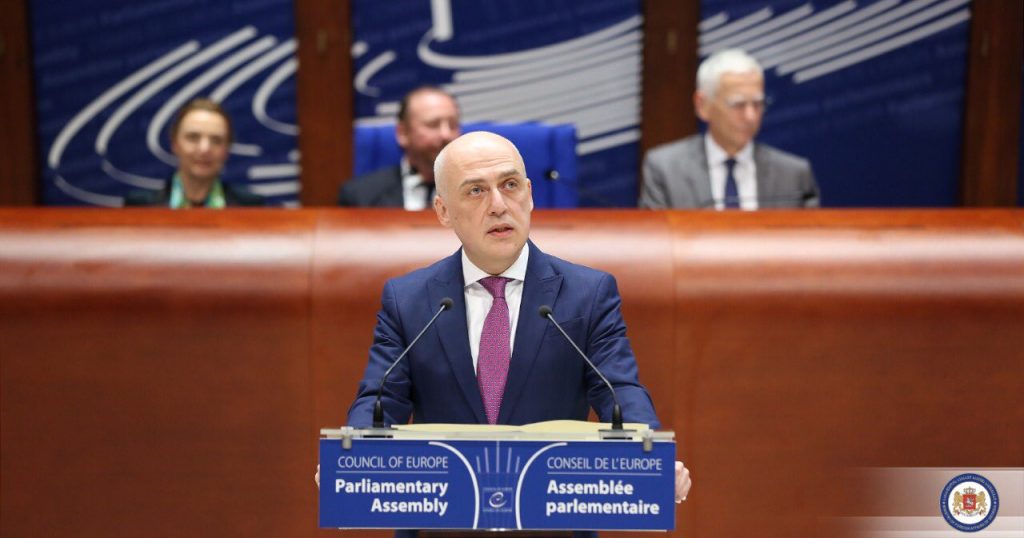On January 27, Georgian Foreign Minister Davit Zalkaliani addressed the winter session of the Parliamentary Assembly of the Council of Europe (PACE), in his capacity as the Chair of the Committee of Ministers of the Council of Europe (CoE).
In his remarks, FM Zalkaliani spoke of the priorities of Georgia’s six-month presidency, which include human rights and environmental protection, civil participation in decision-making process, child-friendly justice and strengthening democracy through education, culture and youth engagement.
- Georgia Takes Presidency of Committee of Ministers of CoE
- Georgian President to Address PACE Winter Session
According to Zalkaliani, the CoE aims to promote and protect the fundamental rights of all individuals in Europe, without exception.
“Nevertheless, we continue to witness grave human rights violations in the areas remaining outside of the control of national authorities and population is deprived of their basic rights, guaranteed by the European Convention on Human Rights,” he said, adding that these areas remain inaccessible by the international organisations, including the CoE.
In his remarks, FM Zalkaliani briefly focused on the activities of the Committee of Ministers regarding the situation in the Russian occupied Abkhazia and Tskhinvali Region/South Ossetia, saying that the Committee of Ministers “will continue to pay the greatest possible attention to the conflict in Georgia, which will remain a standing item on the agenda of the weekly meeting of the Ministers’ Deputies.”
International Organisations, including CoE must have access to the conflict zones to ensure that human rights are respected in those areas of Georgia – addressing @PACE_News
— David Zalkaliani (@DZalkaliani) January 27, 2020
Later, during the Q&A session, Davit Zalkaliani also said that the Committee of Ministers is “highly concerned” over the unresolved conflicts in Europe, as well as briefed the PACE of the “significantly deteriorated” situation in Georgia’s Russian-occupied regions in his capacity as the Georgian FM.
Speaking of the “factual annexation,” and occupation of Abkhazia and Tskhinvali regions, he said “installation of fences and artificial barriers is in progress.”
Zalkaliani then spoke of the closure of crossing points connecting the two occupied regions with Georgia proper, kidnapping and detention of Georgian citizens, as well as ethnic discrimination by restriction of education on native language, denial to immediate medical treatment, and lack of access to their agricultural lands.
- Tskhinvali Temporarily Opens Crossing Point for Certain Group of Akhalgori Residents
- EU Special Representative Meets Georgia Officials, Says Tskhinvali Crossing Points Need to be Reopened
“This is happening in 21st century, which is unacceptable… This has to be considered very carefully at all international levels,” FM Zalklaiani said, stressing importance of the international community “not to turn blind eye to all these illegal activities.” “Otherwise, it will further encourage the occupying force, in this case – the Russian Federation – to continue all these illegal activities.”
This post is also available in: ქართული (Georgian) Русский (Russian)

